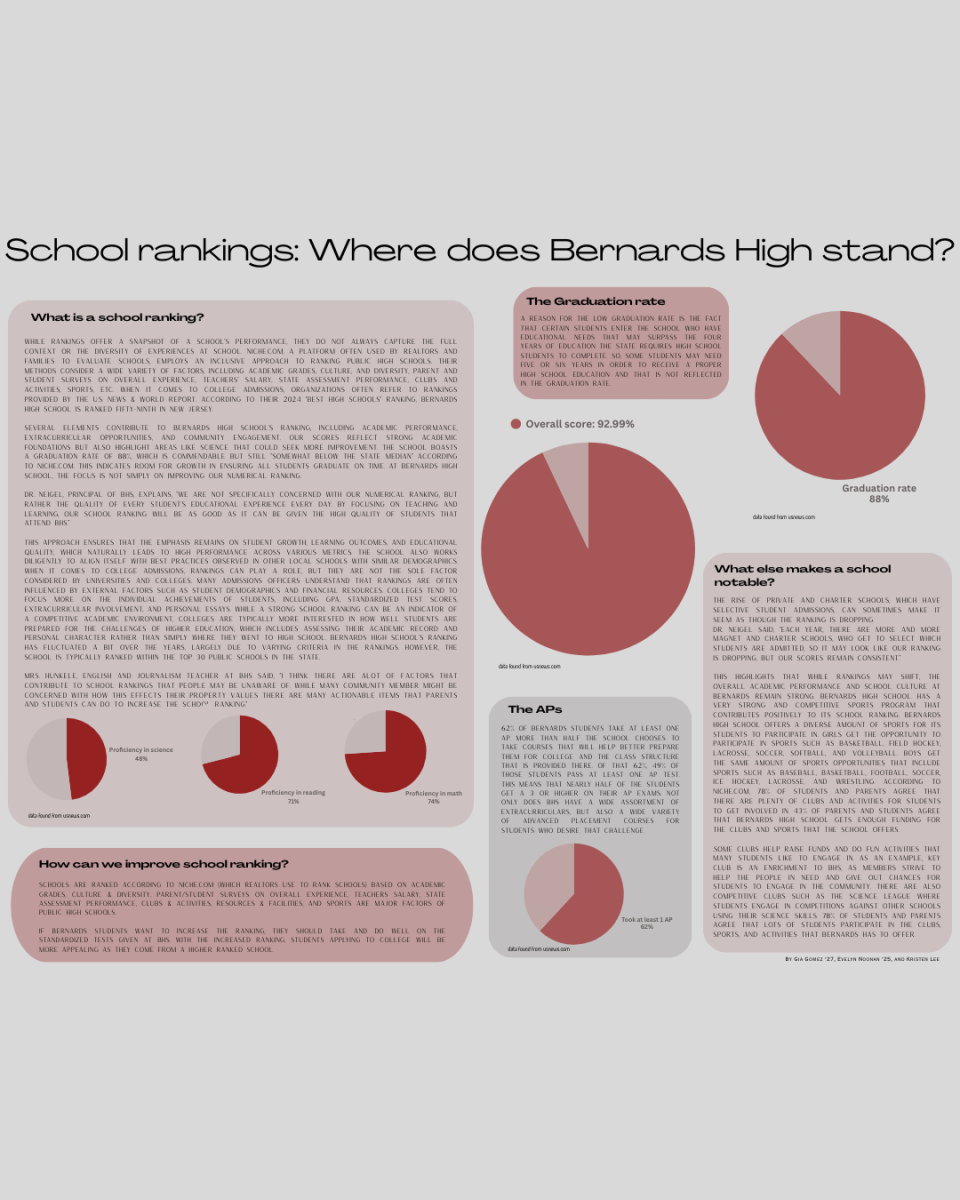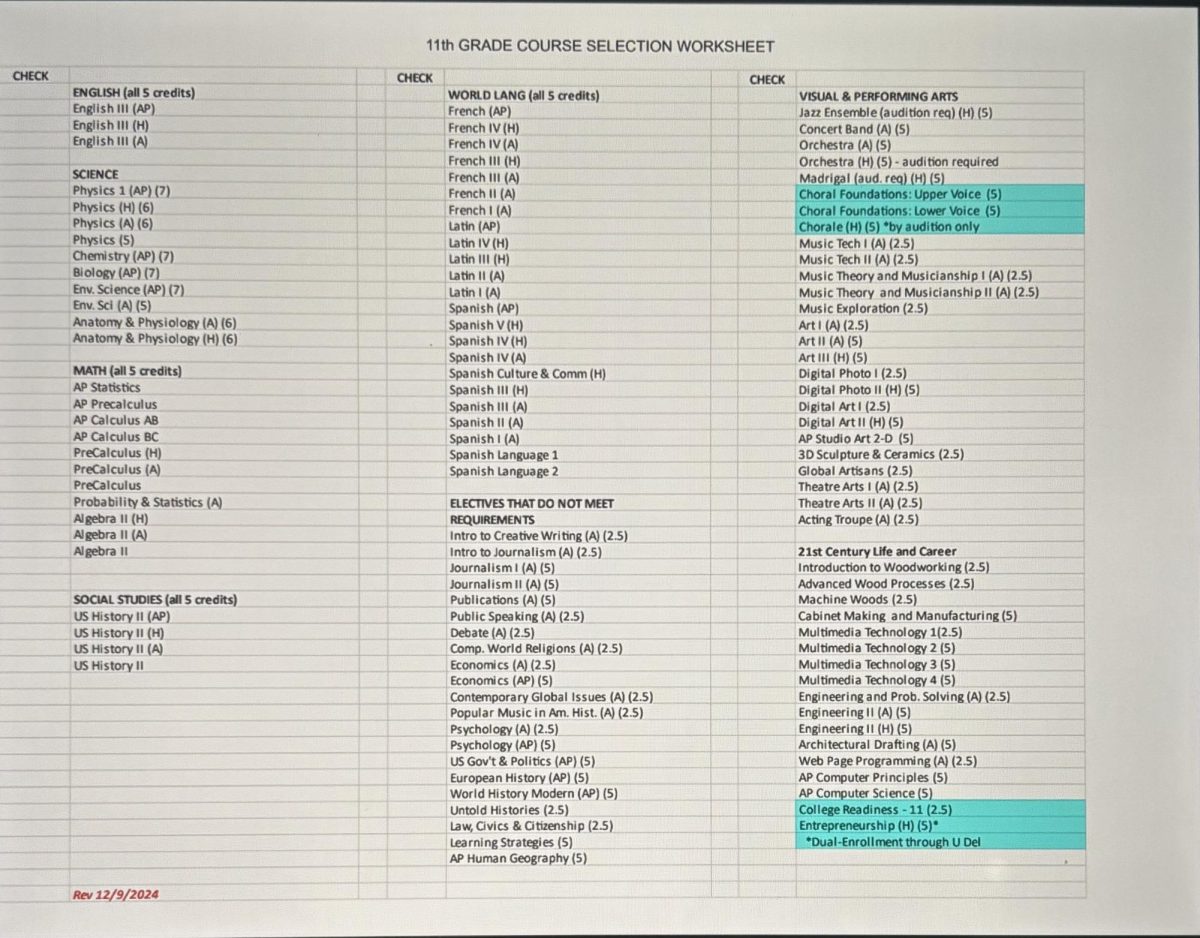With the introduction of Genesis to Bernards High School, there have been some changes. Aside from the new platform, there have been some updates to the grading system. The new grading system was a separate decision that coincided with the stitch to Genesis, which now includes three categories that a grade could fall under: The major assessment category, the minor assessment category, and participation that teachers have to pick. The previous grading system gave teachers more free reign to pick assignment categories and percentages for those categories.
With the new system, teachers in similar departments must align their grading standards (in the History department, all teachers must make their major assignments worth the same weight, minor assignments worth the same weight, and participation worth the same weight). Previously, the teachers had autonomy in setting up their grading system; which led to inconsistency within departments. The new grade book system ensures that there is consistency within the departments.
For example: In the previous system, educators who taught the same subject could have a unit test; one teacher would make a test fifty points; a second teacher could make a test seventy-five points. So, the first teacher’s class’s test would be worth more than the other.
The goal of the new grading system is also to ensure that grades reflect student understanding and learning of the subject. Grades should be an accurate representation of the student’s knowledge of the subject rather than their ability to complete an assignment. Thus, class participation assignments are weighted less than an assessment or project. If a student fails to turn in a class assignment or homework but gets an A on the test, their grade should reflect that they know the content taught to them, not that they missed an assignment. This will make it easier to focus on the learning aspect of school rather than the number you get at the end of a quarter
“We needed to have better clarity and consistency for [the grading system] so that students and parents understand how their grade is being created,” said Dr. Neigel, Bernards High School principal.
The new system is designed to improve the consistency of grades as well as the clarity for parents and students to navigate the grade book. Those other than administrators will have an easier time comprehending the grade book and how points are totaled.
The trade-off for consistency and comprehension of the grade book has forced teachers to be more aware of the weights within different grades.
“The major difference with the new categories is just that you have to be more cognizant, more thoughtful of how you weigh your assignments and how many points you make them out of,” said Latin teacher Mr. Ciocco, “Since everything is going together, you want to make sure that certain assignments aren’t worth ten times more than other assignments unless you want them to be that way.”
While this change has many positives to the new grading system, there are still factors that are in the works.
“Because I had only one math test last quarter, it ended up being 75% of my grade,” Said Pradnesh Thoppay ‘25, “even though I had a good grade before, and some of my classmates did too, everything else didn’t matter because of how much the test was weighted and there was only one test because of the way the content was set up.”
There is still an adjustment period for students and teachers with the new weighting system. While there are still factors of the new grading system that need adjusting, the expectations for the new grading system have a promising outlook.
Many new changes have been made in the 2024-2025 school year regarding the grade book and new platformThere have been benefits and drawbacks to the new grade book noticed by students and faculty in Bernards High School. While this year has been an adjustment period in many areas, the changes will have long-term advantages that outlast the short-term difficulties.








